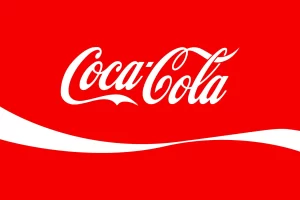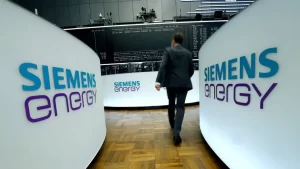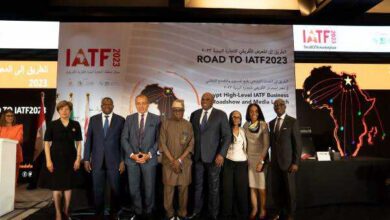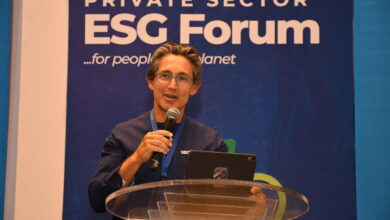
- Coca-Cola raises concerns on corporate sponsorship of climate dialogues
- Report indicts oil giants, Siemens, Afreximbank, Google, IBM, Vodafone, others
As the 27th edition of the Conference of the Parties (COP27) ends in Egypt, Coca-Cola has emerged as one of 18 sponsors that raised concerns about why vital climate talks even have corporate sponsors in the first place.
No fewer than 18 of 20 of the sponsors of the United Nations Framework Convention on Climate Change (UNFCCC) climate talks being concluded in Egypt have been indicted as direct supporters or partners with the fossil fuel industry, according to an analysis by Corporate European Observatory (CEO) and Corporate Accountability.
This analysis comes in the closing days of talks at the conference that have already been marred by revelations of corporate interference and influence, such as the COP Presidency retaining a notable public relations (PR) firm for Big Oil and the presence of over 636 fossil fuel lobbyists.

A report made available to journalists from the conference maintained that although sponsorship by the world’s top plastic polluter for five years running, Coca-Cola has already received extensive scrutiny, as other sponsors raise similar questions about the integrity of the negotiations.
Among this year’s sponsors of the conference are banks that directly finance the fossil fuel industry such as Afreximbank and Mashreq, corporations that build and operate gas-fired power plants like Orascom Construction and Siemens, as well as technology and communications corporations including Cisco, Google, IBM, Microsoft and Vodafone that provide a wide range of services for the fossil fuel industry.
A researcher and campaigner for CEO, Pascoe Sabido, said: “As if it was not bad enough that lobbyists for corporations like Shell, BP and Chevron were visibly walking the various halls of the COP27, there are strong indications that the entire conference is being bankrolled by corporations with close fossil fuel industry ties.
“After 30 years of allowing polluters to upend progress, governments need to finally end the madness and kick big polluters out. CEO and Corporate Accountability are two of over 450 organisations canvassing an end to such sponsorships and other means of corporate persuasion over vital climate talks.
Director of Climate Research and Policy at Corporate Accountability, Rachel Rose Jackson, said: “In August, a broad spectrum of civil society formally requested world governments adopt an accountability framework to address such brazen attempts by polluting industries to obstruct progress and use the UNFCCC for greenwashing.
“Corporations shouldn’t sponsor climate talks, let alone support the deadly agenda of those with ties to the very industry responsible for the climate crisis. Making the primary global forum for averting climate catastrophe a greenwashing platform for polluters undermines the UNFCCC and all its aspirations. This isn’t a trade show, it’s our near final chance to save millions of lives and ensure a livable planet for all.
She pointed out that Corporate Accountability and CEO’s analysis surfaced the following about the COP’s sponsors, adding: “Needless to say, General Motors has long been a major driver of fossil fuel consumption globally. It knew about the impact of the combustion engine on the climate as early as the 1960s, yet lobbied (as it does till today) to block action and funded climate denials.
It would be recalled that Microsoft’s employees protested against the corporation’s complicity in the climate crisis, which is no surprise, given its role as the oil and gas industry’s largest tech partner, helping fossil fuel giants to optimise their extraction activities. What’s more, its “net-zero by 2050” pledge relies on questionable offsets and unproven technology fixes and not an end of ties to the fossil fuel industry.
Read Also: Climate change loss and damage funds uncertain as COP27 ends in Egypt
Siemens already operates and maintains one of the world’s largest gas-fired power plants in Egypt and is planning to build more around the world, including the “largest of its kind” in Turkey.

Siemens Energy, a Siemens spin off, builds gas-fired power plants globally and vital parts for them. It’s currently in construction of an 840MW plan in the UK for last year’s COP26 sponsor, SSE.
Cisco is a leading corporation in providing cyber security services to the oil and gas industry and has long provided communications services to the sector. while Hassan Allam Holdings intends to make North Africa a “regional hub for natural gas” and has announced close to USD $18 billion in oil and gas investments through 2024.
Mashreq refinances multinational oil and gas development, is pushing for fossil fuel development through the energy transition, and has provided USD$90 million in credit for the Middle East’s largest regional private natural gas corporation.
Afreximbank just struck a deal with African petroleum producers to finance existing and new oil and gas projects, while Orascom Construction built one of the world’s largest gas-fired power plants in Egypt.
Self-described as “no stranger to oil and gas,” the Mansour Group has for decades sold fossil fuel drilling equipment with plans to “take a more proactive role in this lucrative field.” It also is invested in a corporation that supports offshore oil and gas development.

ADSERO-Ragy Soliman & Partners is not only a sponsor, but a legal counsel to the COP27 Presidency. It also has represented an array of fossil fuel financiers, not to mention the likes of Ashland Oil, Bechtel, and Mitsubishi Motors.
As during COP26 in Glasgow, Boston Consulting Group’s advisory work with the world’s largest oil corporations and Saudi Arabia raises serious questions about the appropriateness of its sponsoring, let alone helping to organise COPs.
While it is good for Egypt Air to reduce single-use plastics like in-flight Coca-Cola, this hardly qualifies as a high-emitting corporation to sponsor a COP when it had not yet addressed the emissions from its jet fuel.
The document also revealed that IBM is developing novel Carbon Capture, Usage and Storage (CCUS) techniques, a technology promoted by the fossil fuel industry to aid continued extraction and burning of fossil fuels. It’s also involved in what the CSO GRAIN calls a “smokescreen for the emissions of big oil,” a partnership with pesticide and fertilizer corporations to promote so-called “carbon farming.”
Also, Vodafone supports the development and maintenance of oil and gas infrastructure, having built, for instance, a new, private 5G mobile network for the United Kingdom’s (UK) gas supplier Centrica.
A new study had equally indicted Google for enabling Big Oil’s greenwashing, allowing corporations, including ExxonMobil, British Petroleum (BP), Chevron and Aramco to spend tens of millions of dollars targeting search terms like “eco friendly companies” and “pros and cons of Paris climate agreement.”
Even Bloomberg Philanthropies, which had been applauded for its critical investments to move the globe beyond coal, also financed what REDD Monitor dubs “the global financial elite’s plan to profit from the climate crisis, while maintaining business as usual for Big Oil.”
The plan or Taskforce on Scaling Voluntary Carbon Markets (TSVCM) is also sponsored by the Institute of International Finance (IIF), whose members represent 33 of the world’s top 50 fossil fuel financiers. IIF’s operating lead is also senior counsel at a law firm whose clients include the likes of ExxonMobil. The TSVCM is also closely linked to the Integrity Council, which has a range of concerning ties to the fossil fuel industry.
Only two sponsors had no immediate discernible ties with the fossil fuel industry or practices enabling the industry: Infinity Power and Sodic.
Director of Programmes, Corporate Accountability and Public Participation Africa (CAPPA), Philip Jakpor, said: “It is unreasonable and unacceptable for a firm that encourages the fossil fuel industry to be engaged as PR consultant for climate dialogue.
Wondering why the COP27 witnessed more fossil fuel lobbyists than the combined delegations of 15 African countries and why the big polluters, fossil fuel financiers and industry enablers had to bankroll the COP, adding: “You don’t invite the mosquitoes to a malaria conference.”
Follow The Trumpet on all our social media platforms for more updates:




